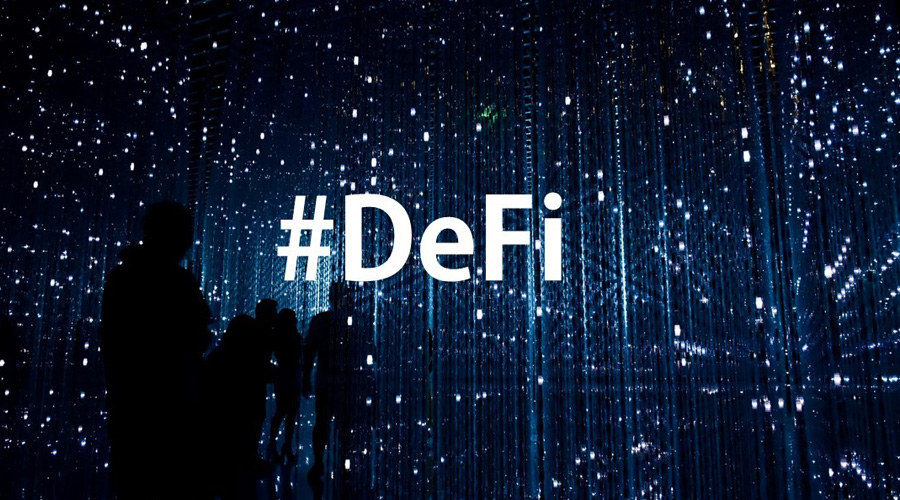Decentralized finance (DeFi) is a rapidly growing ecosystem of financial applications built on blockchain technology. DeFi platforms aim to provide financial services in a decentralized manner, removing the need for intermediaries and enabling greater financial inclusion. However, as DeFi continues to grow, governance is becoming an increasingly important issue. Decentralized autonomous organizations (DAOs) are emerging as a powerful tool for DeFi governance, allowing communities to coordinate and make decisions in a decentralized manner. In this article, we will explore the role of DAOs in DeFi governance.
What are DAOs?
DAOs are organizations that are run by rules encoded as computer programs called smart contracts. These rules dictate how the organization operates, including how decisions are made and how funds are managed. DAOs are decentralized in the sense that they are not controlled by any central authority or individual. Instead, they are governed by the collective decisions of their members.
DAOs have been around for several years, but they have gained significant traction in recent years due to the rise of DeFi. In DeFi, DAOs are used to govern protocols and platforms, allowing users to have a say in how the platform operates and how funds are allocated.
How do DAOs work in DeFi governance?
In DeFi, DAOs are used to make decisions about the governance of protocols and platforms. These decisions can include changes to the protocol, such as modifying the rules for how funds are managed or changing the fees charged by the platform.
DAOs use a voting system to make decisions. Each member of the DAO is given a certain number of votes, which they can use to cast their vote on a particular proposal. Once a proposal has been submitted, DAO members can discuss it and ask questions before casting their vote. If the proposal receives enough votes, it is approved and implemented.
The use of DAOs in DeFi governance has several advantages. First, it allows for greater transparency and accountability. Because decisions are made by the collective vote of the DAO members, there is no central authority that can make decisions unilaterally. Second, it enables greater community involvement in the governance of DeFi protocols and platforms. This allows users to have a say in how the platform operates and ensures that decisions are made in the community’s best interest.
Examples of DAOs in DeFi governance
There are several examples of DAOs being used for governance in the DeFi ecosystem. One notable example is Compound, a decentralized lending platform. The compound has a DAO that allows users to propose changes to the platform and vote on these proposals. The Compound DAO is used to make decisions about changes to the platform, such as adjusting the interest rates offered for borrowing and lending.
Another example is Uniswap, a decentralized exchange. Uniswap has a DAO that allows users to propose changes to the protocol and vote on these proposals. The Uniswap DAO is used to make decisions about changes to the protocol, such as adding new tokens to the platform.
A third example is MakerDAO, a decentralized stablecoin platform. MakerDAO has a DAO that allows users to vote on changes to the platform, such as adjusting the stability fee charged for borrowing against the platform’s stablecoin.
Challenges and limitations of DAOs in DeFi governance
While DAOs offer several advantages for DeFi governance, there are also some challenges and limitations to consider. One challenge is the potential for low voter turnout. Because DAOs rely on the collective vote of their members, low voter turnout can make it difficult to achieve quorum and make decisions.
Another challenge is the potential for manipulation. Because DAOs are decentralized, no central authority can enforce rules or prevent malicious actors from participating. This can make DAOs vulnerable to manipulation by well-funded individuals or groups.
Finally, there is the challenge of on-chain governance. While DAOs can be effective for making decisions about the governance of DeFi protocols and platforms, the process of making decisions on-chain can be slow and expensive. This can make it difficult to respond quickly to changing market conditions or address emergent issues.
Conclusion
The rise of DeFi has brought new challenges to the governance of financial systems. DAOs are emerging as a powerful tool for DeFi governance, enabling greater community involvement and accountability. However, DAOs also come with their own set of challenges and limitations that must be carefully considered.
As the DeFi ecosystem continues to grow, the role of DAOs in governance will likely become increasingly important. As such, it is essential for the DeFi community to work together to develop effective and robust governance frameworks that can support the growth and evolution of the DeFi ecosystem.
